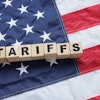
A quick look at the environmental news of late shows a trend: Major corporations are recognizing smarter environmental decisions equal good business decisions. In the past few months alone, companies including McDonald’s and Yum! Brands, which owns KFC, Pizza Hut and Taco Bell, made public commitments to zero deforestation, a movement that is critical to protecting the environment and creating more sustainable supply chains. When done right, sustainability and zero deforestation policies lead to improved brand image, and build stronger business relationships with other organizations and customers. While the long-term benefits are clear, any company embarking on this journey must be mindful of the challenges ahead.
When Asia Pulp & Paper Group (APP) announced its Forest Conservation Policy (FCP) in February 2013, we understood that the road ahead would be challenging, and require patience, focus and perseverance. Just over two years into it, the zero deforestation commitment is held firm by all of our suppliers, and we continue to learn and improve our approach to effectively implement the FCP across our supply chain. Here are several key takeaways we learned so far:
Find the Right NGO Partners and Listen
Third-party oversight is an essential element of any sustainability initiative, especially when your environmental practices were the public target of non-governmental organizations (NGOs) for many years. Show those who criticized you in the past that you are not only listening, but also value their expertise by engaging them to help you throughout the process.
When we created the FCP, we understood the importance of closely partnering with environmental NGOs like Greenpeace, The Forest Trust and other prominent organizations in order to achieve our goals, but what we didn’t realize was just how critical this collaboration would be to our success. Furthermore, along the way, we identified additional partners to bring into the fold to provide collaborative expertise.
Working with activists and NGOs who were once your opponents—and whom you may not always agree with—will challenge you, but stakeholder collaboration is essential to building the right policies for your company. Moreover, by engaging extensively with NGOs and other third-party organizations, you are demonstrating a steadfast commitment to reforming your policies in a way that ensures you are held accountable. We engaged with an independent NGO, the Rainforest Alliance, to demonstrate our seriousness in providing accountability in our policy implementation. The Rainforest Alliance independently evaluated the implementation of the FCP in what is perhaps the only such zero deforestation evaluation exercise in the world. These actions reinforce brand credibility, and strengthen relationships with customers and other critical stakeholders.
Clearly Define Outcomes and Manage the Process
Sustainability and zero deforestation policies need a framework for success, which enables the company to benchmark against established goals. Often, companies announce sustainability initiatives without a set of clearly articulated measurable and achievable milestones. At the outset of any commitment, it is important to recognize what is attainable and not overcommit to policies the company can’t achieve. Not being able to execute upon these commitments erodes company credibility and adversely impacts valued relationships.
At APP, we began our sustainability journey when the Sustainability Roadmap: Vision2020 was announced in June 2012. It pushed the envelope of what many said was possible for our business—and we still have a ways to go—but committing to further improving environmental performance, biodiversity conservation and protection of community rights was the right set of goals.
At the same time, there were others who thought Vision2020 didn’t move quickly enough. We followed through with the FCP announcement two years ahead of schedule, which addressed some of those initial concerns on timing.
The Commitment Must Be Ingrained at All Levels of the Company
Any corporate commitment to change must be leadership-driven with the C-suite demonstrating true dedication to the cause. Sustainability needs to be made the norm, and employees should be given a clear vision of the policies and goals. Management can further instill the importance of sustainability by rewarding employees who show a commitment to change and being transparent when mistakes are made.
For example, the FCP initiative was driven directly from APP’s leadership and was launched by APP’s chairman, Teguh Ganda Wijaya. To further underscore the company’s commitment, in September 2014, Wijaya, on behalf of APP, was invited to join a number of companies, governments and NGOs to sign the New York Declaration on Forests, an international, multi-sector commitment to safeguard the world’s forests and to help tackle climate change, at an event at the UN Climate Summit 2014. This high-profile declaration served as a demonstration of the leadership’s commitment to the FCP progress attained, and sent a clear signal to employees and suppliers that not fulfilling these promises would not be tolerated.
Another key element to ensuring the new policies are embedded into your culture is reviewing every aspect of your supply chain. Suppliers then need to be held accountable to your standards. If there is a member of your supply chain that is breaching your policies, the supplier must commit to conforming to your sustainability commitment or run the immediate risk of losing your business. Ultimately, your organization is responsible for mistakes in the supply chain, so it’s best to address this issue in the beginning of your sustainability efforts.
It’s a Marathon, Not a Sprint
Solutions to complex environmental issues don’t happen overnight. Taking the long-term view is critical if you want to succeed. Instead of fixating on short-term goals, create and work from a realistic timeline for implementing change that will lead to your end goal.
And keep in mind that making these changes could lead to unintended business consequences, including a temporary loss in profits for the short term. Be patient and strategic. Don’t forget that the alternative—losing customers and market share for good due to your bad environmental practices—is much worse.
Above All, Be Transparent
Even if you follow all of the above, the reality is that you are going to make mistakes. When this happens, take responsibility and report them before others do. We had four breaches in our FCP to date, and were quick to acknowledge them, investigate the issue, review our internal policies and then release details about what transpired. We also responded with a longer term solution of what we can do better in a transparent and public manner in the future. Through authenticity and humility, you will prove that you are serious about staying on track.
In addition to regular reports highlighting our progress on Vision2020, a vital component of transparency for APP was publishing updates on the FCP implementation through an online monitoring dashboard. Covering 2.6 million hectares of land, the dashboard maps all of APP’s concession land areas. It also lists grievances submitted by our stakeholders and the verification reports, as well as reports on the progress of various work including high conservation value (HCV) assessments, integrated sustainable forest management plan development and others. The data, provided mostly by those on the ground, is uploaded to the site, affording greater transparency to key stakeholders including local communities, NGOs, and existing and prospective customers.
It’s important to remember that not everyone is going to immediately applaud and reward a company for announcing a sustainability policy or a zero deforestation commitment. With this skepticism in mind, don’t promise practices or commitments that you can’t realistically deliver on or that would jeopardize the long-term health of your organization.
As zero deforestation becomes the norm for businesses across the globe, we can continue to learn from the challenges that each of us face. The ongoing journey of zero deforestation will continue to change—and we are ready to evolve with it.
Ian Lifshitz is the sustainability director for the Americas for Asia Pulp & Paper Group (APP).














![Pros To Know 2026 [color]](https://img.sdcexec.com/mindful/acbm/workspaces/default/uploads/2025/08/prostoknow-2026-color.mduFvhpgMk.png?ar=16%3A9&auto=format%2Ccompress&bg=fff&fill-color=fff&fit=fill&h=135&q=70&w=240)




